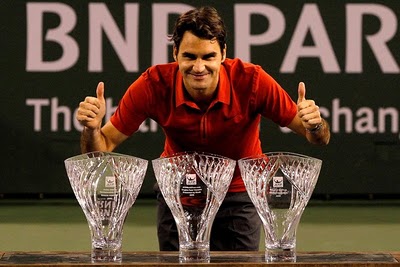The Superstar Effect: Your Rocket Fuel for Success
31 Dec
The Superstar Effect
The Superstar Effect refers to a phenomenon where the best performer in a field gets a disproportionate amount of attention compared to other (almost as good) performers.
This concept was outlined in 1981 by Sherwin Rosen (The Economics of Superstars, 1981) and can be observed in sport, music, Hollywood, art, and more. The extra attention brings greater notoriety, fame, more money, and most importantly more opportunities. A famous actor gets offered all the best roles in the biggest movies. A superstar singer attracts the best management, record deals, and can charge top dollar for concert tickets.

In tennis, Roger Federer’s status as the World #1 junior and junior Wimbledon champion won him 8 ATP wildcards while still only 17! This and other unique opportunities ensured that Roger did not compete on a level playing field with lower ranked players. They were stuck in qualifying events and lower tier tournaments, while he was learning from the likes of Andre Agassi and other top players.
Tournament wins and media attention ensure that people take notice. People remember your name and label you as talented or gifted. So months later when selectors are choosing a squad to represent your region or to attend a training camp, they will be strongly inclined to select you (based on your reputation) in preference to someone who has attracted less attention, even if they are just as good a player.
In other words the multiplier effect can be supercharged for anyone who makes headlines or establishes themselves as #1 because you attract an almost unfair amount of support from others.
Rise of the Small Town Hero
This advantage can be exploited by young players in smaller towns in particular. Sure, in a big city you may have access to ample training facilities and tennis programs, but the landscape is highly competitive, so it’s harder to stand out.
In regional areas there are fewer competitors, and it’s therefore easier (relatively speaking) to stand out. A #1 player in a small town might not be ranked in the top 20 in a major city, but because they are the standout in their area they might attract sponsorship, qualify for the best coaching programs in the area, be featured on the news, and generally attract a lot of support. This leads to selective opportunities that an equally good player might not get in the city because they are lost in the crowd.
Choose Your Weapon
In essence, the superstar effect is simply an extreme form of the multiplier effect, reserved for those at the pointy end of the tree. So find ways to stand out from your peers, and reap the rewards. If you can’t get the #1 ranking, be known for something else – the biggest serve, the best serve-volleyer in the region, the fastest player around, the fittest, or a feared doubles specialist. Develop a weapon…and be known for it.


No comments yet